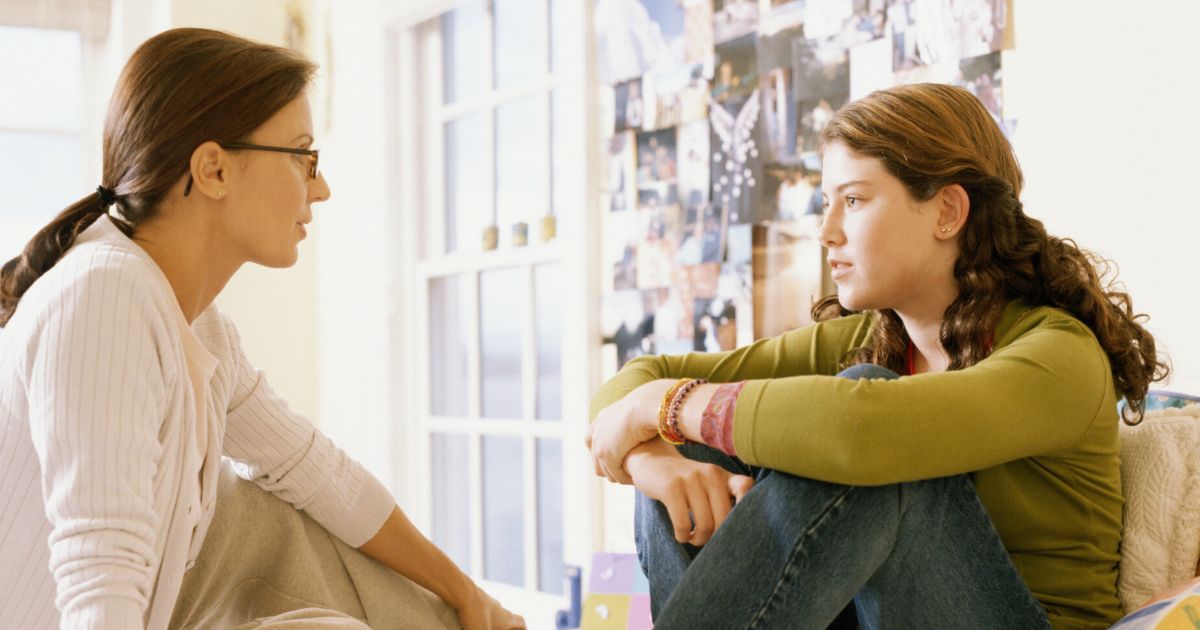In the wake of tragic events like the mass shooting at Michigan State University, parents can struggle to find the right words to say to their children. Addressing traumatic events is no simple feat, but there are several approaches that can be helpful in making sure your child feels safe, heard and supported.
We sat down with Christy Buck, Executive Director of the Mental Health Foundation of West Michigan (be nice.) to learn more about what parents need to know in times of difficulty.
According to Buck, regardless of how old they are, kids are looking to their parents to feel safe.
"You can ease their potential fears and anxieties by listening to their concerns and listening intently and answering their questions," Buck said, noting how vital it is to gather correct information yourself before broaching the topic. "You've got to gently correct misinformation kids may be exposed to. A lot is happening. If you know what your schools and communities are doing to increase safety, remind them of that, as well."
Of course, it's important to remind kids that you're there to provide safety, comfort and support. Depending on the age of your child or children, starting the conversation can be as simple as asking: "What are you hearing about _____? What are other kids saying about _____?"
"And that's where you need to be informed of what's going on, and you can tell them the truth," Buck said, emphasizing that it's best not to incorporate your own opinion in your responses. "Really, a single statement is enough for you to get through to your kids. Things like, 'Obviously, this person must have been very ill to have done something like this. I can't imagine how those students are feeling. It must have been really scary,' ... those type of things."
Buck reminds parents: Kids are looking at your reaction when tragic events happen.
"Process this information for yourself, and before you go to your kids, make sure you know where you're sitting right now," she said, encouraging parents to think about what it is they want their children to understand about an incident after the conversation. "With elementary kids, decide beforehand how much you want them to know and get them away from social media sites with photos and videos, which are known to stick with children longer than words do.
"Middle and high school kids are likely to have already heard about and seen things, but teenagers are likely to want to get involved and take a stand. They may ask you 'What are you going to do about this?' And maybe that means sitting down together and figuring out what you could do together to get involved."
You could steer them, Buck explains, in a direction toward a particular cause, such as advocating for mental health awareness or helping recognize the heroes in situations like these. She also suggests focusing on hope where it can be found to avoid children getting stuck in a cycle of doom and gloom.
"Oftentimes, that's where individuals get stuck in that feeling of hopelessness and thoughts of 'We're never ever going to get rid of these types of situations, they're constantly happening,' ... well, think about and share where the hope is," Buck said.
While you should always pay attention to your child's behavior, it's vital to notice it in the days, weeks and months following a traumatic event and note any concerning changes. Buck suggests taking the be nice. action plan to equip yourself with helpful knowledge.
"The first step of the pledge is best, and that's NOTICE," she said. "Whether it's behavior changes like isolating themselves, being sad more often or quiet and spending more time in their room, or physical changes like having no appetite, not wanting to eat or not taking care of themselves. There could also be psychological changes such as high anxiety and an expression of fear of going back to school because of something like this happening to them. Parents should recognize that sometimes, these changes are not going to come through necessarily in conversations; it could be through how child is acting."
Buck suggests sitting down to have a more serious conversation if concerning behaviors persist.
"Ask them what's bringing about these feelings," Buck said. "That's where it could be time to potentially access some resources that are available already at school, such as sitting down with a counselor or principal, and easing your way back. It's not uncommon for people to feel this way after events like this, but especially those who are already at risk for anxiety. It could disable them from wanting to go back to school, doing the things they loved and being around their friends."
For parents who want to know more, the be nice. action plan which only takes 12 minutes to complete, offers a full picture of what to be looking for and how to start a conversation, especially if someone doesn't want to get help or are a danger to themselves. It also helps folks to empower those in distress to understand that help is available.
"If you want to access actual resources to bring an individual in for some counseling, start with their pediatrician," Buck said. "Also, check with your insurance provider to learn what type of coverage you have for mental health services. If you do not have insurance, connect with Network 180. In addition, all parents should have the 988 Suicide & Crisis Lifeline at their fingertips. It's not only for suicide prevention, but for crisis situations, as well. A lot of individuals use this just to have a conversation startup with someone if they're feeling overwhelmed or anxious and need a trusted adult other than their parents to talk to."
Buck notes that middle and high school IDs in Michigan also have the 988 number printed on the back for easy access for students.
If talking on the phone isn't what a child wants to do, they can also text "HOME" to 741741 to text with a professional about topics ranging from bullying and school stress to depression, anxiety, suicide and self-harm. Additional support specifically for gay, lesbian, bisexual and transgender youth can be found at the LGBT National Youth Talkline at 1-800-246-7743 or at The Trevor Project at 1-866-488-7386.
Resources are available on the Mental Health Foundation of West Michigan's website, including a directory of recommended clinicians and organizations who can help.
Written by Sarah Suydam, Managing Editor for West Michigan Woman.




